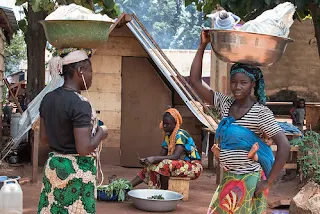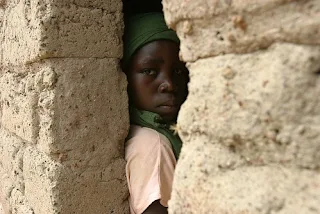The Historical Context of Ubangi-Shari
Ubangi-Shari is named after two major rivers in the region, the Ubangi River and the Shari River.
In the early 20th century, as European colonial powers expanded their imperial influence in Africa, the region now known as the Central African Republic and Chad was part of a French administrative territory called Ubangi-Shari.
This territory was named after two major rivers in the region, the Ubangi River and the Shari River. The Ubangi River flows through what is now the Democratic Republic of Congo and the Central African Republic, while the Shari River flows through Chad and the Central African Republic. Ubangi-Shari was one of several colonial entities established by the French in Africa during this period.
Ubangi-Shari encompassed a vast area in Central Africa, including the basins of the Ubangi and Shari Rivers and the surrounding regions. This territory was known for its geographical diversity, ranging from dense rainforests along the Ubangi River to savannas and desert areas further north.
Ethnic Diversity in Ubangi-Shari
Within the expansive territory of Ubangi-Shari, a rich tapestry of diverse ethnic groups thrived, each contributing to the region's mosaic of cultures, traditions, and languages. The remarkable ethnic diversity in this part of Central Africa was a testament to the complex social fabric that existed within its borders.
In the southern reaches of Ubangi-Shari, nestled along the fruitful banks of the Ubangi River, indigenous communities such as the Ngbaka, Yakoma, and Gbanziri resided. These riverine societies often relied on fishing and agriculture, harnessing the fertile soils and abundant waters of the Ubangi to sustain their way of life. Their traditions were deeply rooted in the river's rhythms, with vibrant ceremonies and artistry reflecting their connection to nature.
As one ventured northward into the heart of Ubangi-Shari, the landscape transitioned into a vast expanse of savannas, where nomadic groups like the Fulani and Arab Choa roamed. These pastoralists were renowned for their cattle herding skills and a nomadic lifestyle shaped by the rhythms of the seasons. Their unique culture revolved around the importance of cattle, and their traditions included elaborate rituals and storytelling passed down through generations.
Moving further north, towards the Saharan desert, the landscape grew more arid, and the Tuareg and Toubou peoples made their homes. These nomadic desert dwellers were masters of survival in harsh conditions, relying on camel herding and trade across desert oases. Their way of life was marked by the iconic blue robes of the Tuareg and the tenacity of the Toubou, whose culture was steeped in desert traditions.
Throughout Ubangi-Shari, the languages spoken were as diverse as the ethnic groups themselves. Languages like Sango, French, Arabic, and numerous indigenous tongues resonated within this ethnically rich tapestry, serving as both a means of communication and a vessel for preserving cultural heritage.
French Colonial Ubangi-Shari
Under French colonial rule, Ubangi-Shari bore witness to European influence and administration. The French established their governance systems, including taxation, labor practices, and resource extraction. This period significantly impacted the local populations, as they were subjected to forced labor and economic exploitation.
In 1960, as the winds of decolonization swept across Africa, the Central African Republic and Chad gained independence from French colonial rule.
The Central African Republic, with its capital in Bangui, became a sovereign nation, while Chad, with its capital in N'Djamena, also became independent. Today, the Central African Republic and Chad are separate, sovereign countries with their own governments and borders.



























